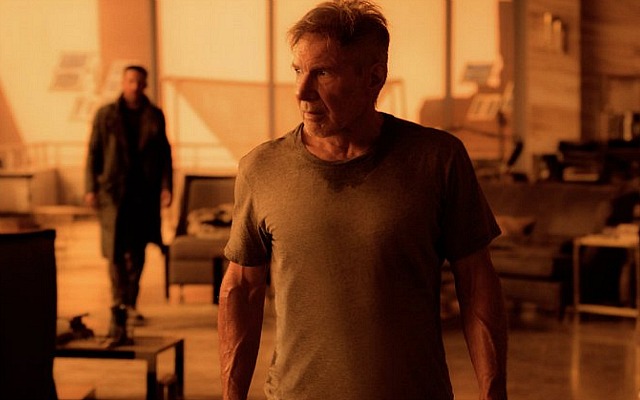From A.O. Scott’s N.Y. Times review of Blade Runner 2049: “[Warner Bros.] has been unusually insistent in its pleas to critics not to reveal plot points. That’s fair enough, but it’s also evidence of how imaginatively impoverished big-budget movies have become.
“Like any great movie, Ridley Scott’s Blade Runner (’82) cannot be spoiled. It repays repeated viewing because its mysteries are too deep to be solved and don’t depend on the sequence of events.

“Denis Villeneuve’s film, by contrast, is a carefully engineered narrative puzzle, and its power dissipates as the pieces snap into place. As sumptuous and surprising as it is from one scene to the next, it lacks the creative excess, the intriguing opacity and the haunting residue of its predecessor.
“As such, Blade Runner 2049 stands in relation to Blade Runner almost exactly as K stands in relation to Deckard before the two meet: as a more docile, less rebellious ‘improvement,’ tweaked and retrofitted to meet consumer demand.
“But now and then — when Ryan Gosling‘s K and Harrison Ford‘s Deckard are knocking around the old gambling palace; when K visits an enigmatic mind-technician played by Mackenzie Davis — you get an inkling that something else might have been possible. Something freer, more romantic, more heroic, less determined by the corporate program.”













